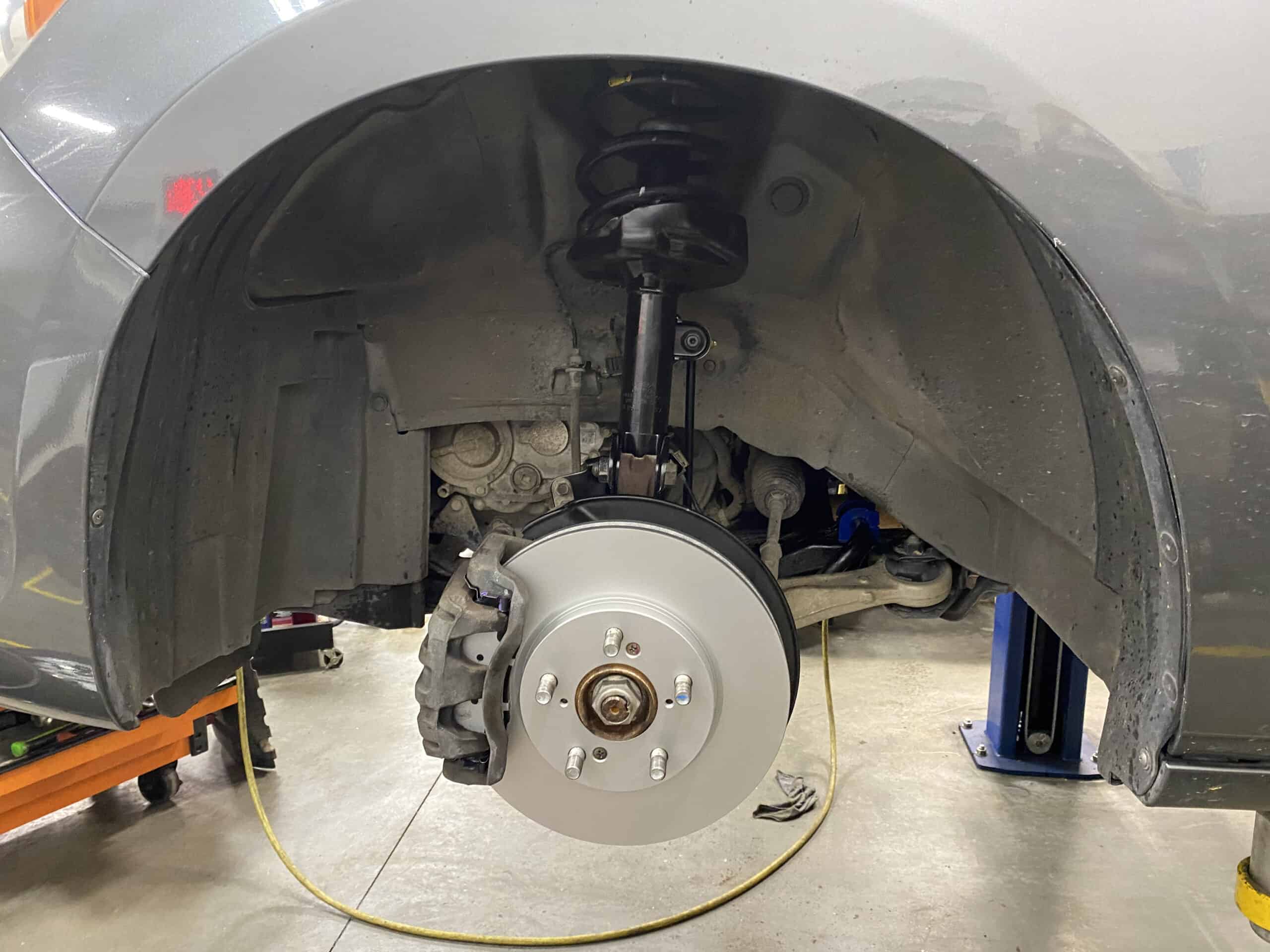Preventative Maintenance
Take control of your vehicle’s longevity and performance by prioritizing preventative maintenance. From brakes and oil changes to alignment and tune-ups, Modern Auto Service will ensure your vehicle remains in optimal condition for the long haul.
In the ’80s, odometers would max at 99,999 miles and start over at zero. In other words, you were the exception if you could get to 100,000 miles.
With modern vehicles, 100,000 miles is the expectation. However, you need preventative and factory-recommended maintenance to reach 100,000 miles or more.
At Modern Auto Service in Fruitland, ID, our technicians offer every maintenance service your vehicle will need. So, whether you need your brakes serviced, an oil change, a tire rotated, a tune-up, or any other car maintenance service, Modern Auto Service is here to help.
Preventative Maintenance vs. Factory-Recommended Maintenance
For the most part, “preventative maintenance” and “factory-recommended maintenance” are used interchangeably. Both are proactive services designed to maintain your vehicle’s health and performance.
Preventative maintenance refers to routine maintenance tasks designed to prevent potential problems before they occur, like regular inspections, fluid changes, filter replacements, and component lubrication.
On the other hand, factory-recommended maintenance refers to maintenance tasks outlined explicitly by the vehicle manufacturer in the owner’s manual or maintenance schedule. The tasks are usually done in specific mileage or time intervals, for example:
- 30,000 mile
- 60,000 mile
- 90,000 mile
The usual services under factory-recommended maintenance may vary depending on the vehicle make and model, but they typically include the following:
- Oil and filter changes
- Fluid checks and replacements
- Engine air filter replacement
- Spark plug replacement
- Brake system inspection
- Battery inspection and testing
- Timing belt or timing chain replacement
- Suspension and steering system inspection
- Wheel alignment
- HVAC (heating, ventilation, and air conditioning) system maintenance
- Tire rotation and inspection
- Engine tune-ups
While preventative maintenance is a broader approach that goes beyond the manufacturer’s recommendations, factory-recommended maintenance is focused on following the specific guidelines set by the manufacturer. Nevertheless, both are important for a vehicle’s overall care and reliability.
Fleet & Truck Maintenance in Fruitland, ID
In addition to the maintenance of personal vehicles, we offer services to commercial trucks and fleet vehicles. We regularly partner with businesses throughout the Fruitland, ID area to create personalized maintenance plans. We will design these plans based on the unique driving circumstances of your vehicle.
For example, if your vehicles are used for towing, we will suggest you stick to the severe service intervals, which are shorter. Because vehicles used for heavy-duty applications need more rigorous services, we will create a plan to protect your vehicles, improve performance, and maximize their longevity.
EV & Hybrid Vehicle Maintenance in Fruitland, ID
At Modern Auto Service, we are a certified hybrid service center. Our ASE-certified technicians have received specialized training for servicing vehicles with electric and hybrid powertrains.
Whether it is regenerative brake maintenance, battery maintenance, fluid services, or any other hybrid or electric car maintenance, the Modern Auto Service team can help.

Do I Need to Take My Vehicle to the Dealership for Maintenance?
Contrary to popular belief, you do not have to. It’s illegal for a vehicle manufacturer to require you to take your vehicle to the dealership or any other facility for service. Instead, savvy drivers in Fruitland, ID save time and money by servicing their vehicles at Modern Auto Service.
Stay Ahead of Vehicle Issues:
Schedule Preventative Maintenance Today!
At Modern Auto Service, we believe maintaining your vehicle is much more cost-effective than undergoing repairs. And no matter the maintenance service you need, the ASE-certified technicians at Modern Auto Service can and will surely help.
Contact Modern Auto Service today for preventative maintenance of your car, truck, fleet, hybrids, and electric vehicles. Contact us today at (208) 452-2886 or stop by our shop at 1225 S Pennsylvania Ave., Fruitland, ID 83619.


